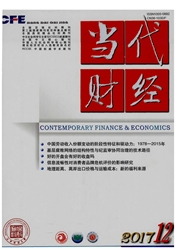

 中文摘要:
中文摘要:
从区域空间关联视角出发,将资源环境约束纳入全要素生产率分析框架中,测度了我国29个省级地区2001—2011年全要素生产率的变动及其区域非均衡性,并在此基础上构建空间计量模型对影响全要素生产率的因素进行了实证研究。研究发现,各省区普遍处于环境无效率状态,资源环境约束下我国全要素生产率总体呈现较为明显的“增长效应”及空间非均衡性,能源消费结构、要素禀赋等因素对全要素生产率有不同程度的影响。
 英文摘要:
英文摘要:
From the perspective of regional spatial correlation, this paper brings the constraints of resource and environment into the analytical framework of TFP to measure the changes of TFP in China's 29 provinces over the period from 2001 to 2011 and its regional imbalance. On this basis, it constructs the spatial econometric model to make an empirical study of the factors which influence the TFP. The results show that the environmental inefficiency is ubiquitous in these provinces, that under the constraints of resources and environment China's TFP generally presents a rather significant "growth effect" and spatial imbalance, and that such factors as structure of energy consumption and factor endowments have varying degrees of effect on the TFP growth.
 同期刊论文项目
同期刊论文项目
 同项目期刊论文
同项目期刊论文
 期刊信息
期刊信息
